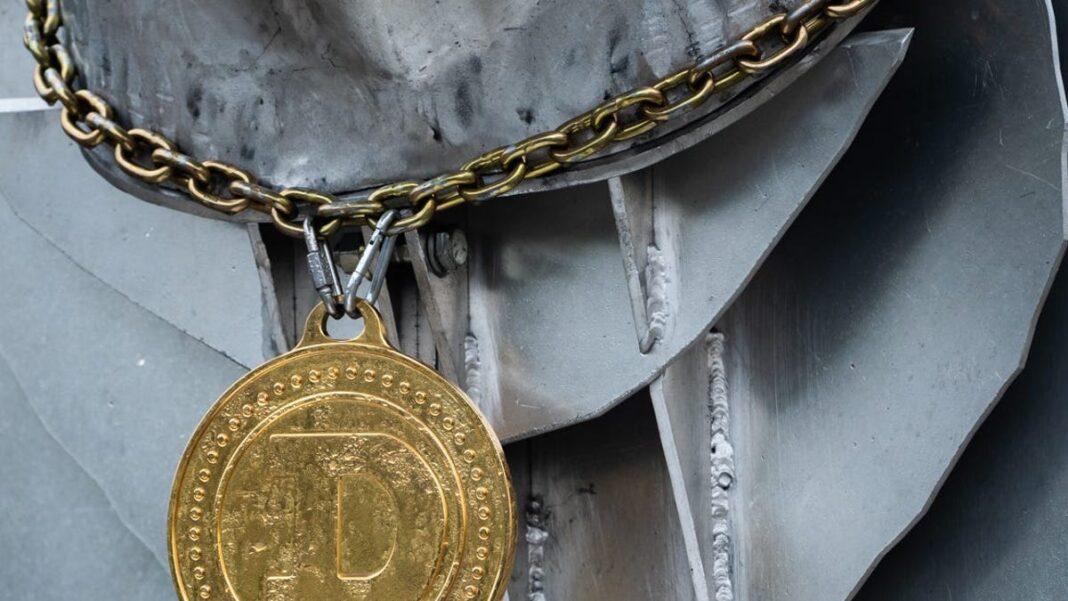Bitcoin is not the only cryptocurrency on the rise. Which one should you invest in: Dogecoin or XRP?
The cryptocurrency market is buzzing. Since election night, Bitcoin has seen a remarkable price increase, coming close to crossing the $100,000 threshold. Investors are optimistic about a more favorable regulatory scenario under President-elect Donald Trump and the prospect of lower interest rates, which have historically been beneficial for cryptocurrencies.
Yet, Bitcoin isn’t alone in its upward trajectory. Other cryptocurrencies often follow in Bitcoin’s footsteps due to its status as a market leader. Following the election, both Dogecoin (CRYPTO: DOGE) and XRP (CRYPTO: XRP) have also recorded significant gains, even surpassing Bitcoin’s performance.
With momentum picking up in the market, the question arises: which one is a better investment?
Dogecoin: The original meme coin
Dogecoin was launched in 2013 by software developers Billy Markus and Jackson Palmer as a humorous take on the cryptocurrency trend, using a Shiba Inu dog meme as its mascot.
Contrary to their expectations, Dogecoin gained massive popularity, particularly during the meme stock and cryptocurrency craze of the pandemic when it was championed by figures like Elon Musk.
Critics often argue that Dogecoin lacks substantial utility beyond typical blockchain payments, a feature available in most cryptocurrencies. Its supply is unlimited, albeit there is a set reward of 10,000 Doge for each newly mined block. In contrast, Bitcoin is often prized for its limited supply, which is believed to provide a safeguard against inflation.
A notable strength of Dogecoin is its ability to build a strong community and create viral moments. This aspect plays a significant role in its over $59 billion market cap, placing it as the seventh-largest cryptocurrency globally. Influential figures, such as Musk and Mark Cuban, have voiced their support for Dogecoin and accepted it as payment in their ventures.
Musk’s extensive following of over 206 million on X serves as an effective promotional platform. Often, his tweets about Dogecoin act as powerful triggers for price movements.
XRP: Tailored for international transactions
While any cryptocurrency can technically handle international transactions, Ripple designed XRP specifically for this purpose. XRP boasts transaction processing times of three to five seconds and can handle more than 1,500 transactions per second, making it highly suitable for business applications. Furthermore, Ripple pre-mined 100 billion XRP tokens and employs a consensus algorithm rather than traditional mining to verify transactions, enhancing its energy efficiency and minimizing transaction fees.
The fixed supply of 100 billion positions XRP as a potentially better hedge against inflation compared to Dogecoin. XRP is also a contender for becoming a spot exchange-traded fund (ETF), which would enhance its liquidity and market visibility. Some companies have already commenced initiatives for the ETF, and XRP has recently become available for trading on Robinhood.
XRP has attracted significant attention in recent years, albeit not for favorable reasons. The Securities and Exchange Commission (SEC) has filed a lawsuit against Ripple and its founders, Christian Larsen and Brad Garlinghouse, asserting that they sold XRP as an unregistered security back in 2013. This legal battle has implications for the broader cryptocurrency market, as discussions surrounding regulatory authority continue.
A federal judge has already made a ruling in favor of Ripple, though the SEC has appealed parts of the decision. With SEC Chair Gary Gensler expected to depart after President-elect Donald Trump takes office in January, the lawsuit’s resolution might occur sooner than anticipated.
Which should you purchase?
I acknowledge Dogecoin’s potential for growth in a bullish cryptocurrency market, but I lean towards XRP as a superior choice. I believe XRP offers more practical applications, possesses a fixed supply, and is more likely to see the introduction of spot XRP ETFs — though it’s not out of the question for Dogecoin to also secure this opportunity. Moreover, XRP’s price has been impacted by the ongoing lawsuit, which I anticipate will change favorably soon.
Bram Berkowitz holds positions in Bitcoin and XRP. The Motley Fool has investments in and recommends both Bitcoin and XRP. The Motley Fool adheres to a specific disclosure policy.
The Motley Fool collaborates with YSL News to provide financial news, insights, and analysis aimed at empowering individuals to manage their financial futures. This content is produced independently of YSL News.
Don’t let this chance slip by for a potentially rewarding investment
Occasionally, our seasoned analysts provide a “Double Down” stock recommendation for companies they believe are on the verge of significant growth. If you feel like you may have already missed your opportunity to invest, now is the perfect time to act before it becomes too late. The performance data speaks volumes:
- Nvidia: if you had invested $1,000 when we recommended it in 2009, you would have $358,460!
- Apple: if you had invested $1,000 in 2008, you would have $44,946!
- Netflix: if you invested $1,000 back in 2004, you would be sitting on $478,249!
Currently, we’re issuing “Double Down” alerts for three exceptional companies, and this may be your best opportunity.
There may not be another opportunity like this in the near future.

